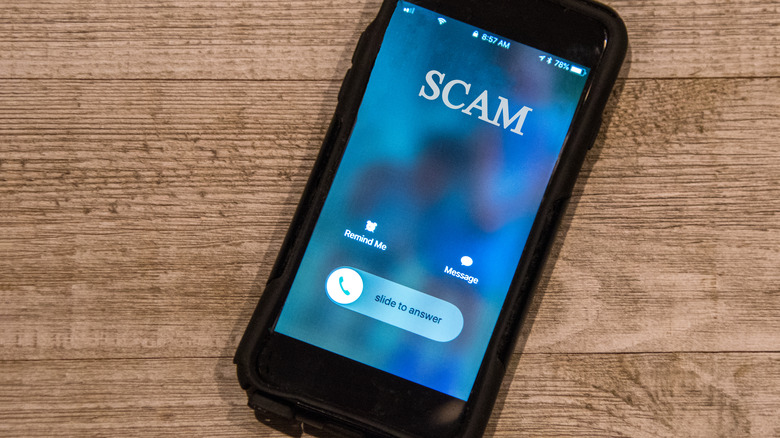What Is Neighbor Spoofing And How Do They Do It
Robocalls and spam calls are one of the most annoying aspects of having a phone, and according to Truecaller Insights, in a year, nearly one in three Americans have fallen prey to a phone scam, to the tune of over $29 billion. The Federal Communications Commission has recommendations for Americans trying to cut down on spam calls, including call blocking from major carriers. But the calls just keep coming, and scammers and telemarketers are getting sneakier.
One of the latest ways that scammers use to get you to pick up is to make it seem like someone you know is calling you. They manage that by using a third-party software company. Those companies can make a call from anywhere in the world look like it's a reliable call from someone in your area code (via Robokiller). When it seems like it's someone in your area code, the idea is that you'll be more likely to pick up, thinking that it's someone you know or do business with and maybe you just forgot to save their number. That's why this type of scam call is called neighbor spoofing — they want you to think that it might be your neighbor on the line.
The same way that scammers can get software to make it seem like someone in your area is calling you, they can also make it seem like a government agency like the IRS is calling you. It's just another way make it more likely that you'll pick up (from IRS).
It's illegal to spoof a number, but it still keeps happening
To try and stop these types of calls, the Truth in Caller ID Act was passed in 2009, which made it illegal for anyone in the U.S. to spoof caller ID information with the goal of defrauding or causing harm to anyone (via Gov Info). In 2019, the FCC expanded the rules to apply to text messages and to international calls (from AARP).
While it is still technically illegal, the calls have kept going. "My take is the rules are not going to make a difference in terms of people making these calls," Alex Quilici, CEO of a robocall-blocking service called YouMail, told AARP. "If I'm an IRS scammer trying to scam you out of money, having a fake caller ID is the least of my concerns."
When in doubt, just don't answer the phone. If it's a real person who really did needs to get in touch with you, they'll leave a message or voicemail, and you can call them back (from USA Today).
And it might help to know that on occasion, spoofers and scammers do get caught. A Texas based health insurance telemarketer made a billion calls in under five months using illegal spoofing; they were fined $225 billion in March of 2021 (from FCC).

